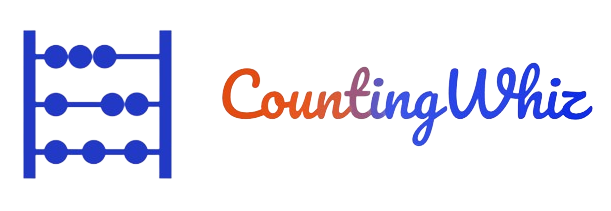Struggling with Maths? Why not try an 800-year-old trick!
Do you find maths hard? Don’t worry! There is a fantastic trick that has been around for over 800 years—and it continues to work like magic today!
It’s called an Abacus. A long time ago, children used to solve big math problems without calculators. It’s a colorful bead instrument. If you move the beads around, it helps you add, subtract, multiply, and even divide! The best part? It also makes your brain super sharp!
Many kids in countries like Singapore, the UK, and India use it every day. So, if maths feels boring or tough, try the abacus and become a maths hero!
The Clever Trick That Makes Math Fun!
The abacus is a basic instrument constructed of rods and beads. It can appear rather like a toy, but it is a highly effective maths instrument. People have been using it for centuries to add, subtract, count, and even perform large calculations like multiplying and dividing.
The best part? You don’t need batteries, you don’t need a screen. All you need is your fingers, your eyes, and your brain.
The abacus began a long, long time ago. Some say it was used in China, Japan, and even India over 800 years ago. Before calculators and mobile phones, people used them for shopping, building, and running businesses.
Now, it’s coming back – not just in schools but in homes across Singapore, the UK, and other parts of the world.
Why? Because it’s enjoyable, straightforward, and it teaches children things.
From History to Hands: The Journey of the Abacus
The abacus has beads that move along rods; each bead corresponds to a number.
So, suppose you want to work out 2 + 3. You would slide two beads on one rod, then three beads on a rod. Now you can count the beads and see you have 5!
Seems easy, right? Well, naturally, it’s simple if you know the way, and once you practice a bit, you’ll find you’re getting faster with your hands and getting faster with your mind.
Some children can even start performing additions in their head with the image of the abacus in their mind – this is known as the mental abacus; it’s playing a computer game in your mind, but instead of only having fun, you’re also learning and becoming smarter.
Why Is It Great for Kids?
The abacus is not just for learning maths. It also helps with:
Memory – You remember numbers better.
Focus – You learn to pay attention and sit still.
Speed – You can solve problems quickly.
Confidence – You feel proud when you get the answers right.
Parents in Singapore often start abacus classes when their children are just 4 or 5 years old. Many schools there even teach it as part of their learning. In the UK, more and more parents are joining abacus classes or clubs to help their children catch up or get ahead in maths.
Real Stories, Real Smiles
Children who once found maths scary say they now love it. They enjoy moving the beads, solving sums, and even racing their friends in maths games.
One 6-year-old from London said, “I used to hate numbers. Now, I’m faster than my big brother!”
A mum from Singapore shared, “My daughter was shy and slow in maths. After using the abacus for 6 months, she’s at the top of her class!”
Think It’s Tough? You’ll Be Surprised!
Not!! It is simple to do even for a 4-year-old. At first, you might feel a little odd working the beads, but like learning to ride a bike or tie your laces, it becomes second nature very quickly once you have learned how to do it.
There are also loads of good learning ideas like songs, videos, games, and colourful books. Some children learn it on the internet, others attend an abacus club or class.
Should You Try It?
Yes! Whether you are a parent or a child, the abacus is worth trying.
Parents – if your child is struggling with maths or just needs a fun way to learn, this ancient trick could be the answer.
Kids – if you want something that will make you feel smart, fast, and proud, then the abacus is going to be your new best friend – it is going to be your best-kept secret.
It is old, it is simple, and it works!
Next time you are stuck on something maths-related, remember this trick; it is 800 years old; maybe it can change your life and the way you think about numbers from here on in.
